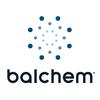We can now find the best immune systems
Published: September 26, 2014
Source : Kathleen Thompson-Crispi and Bonnie Mallard (University of Guelph)
We can now find the best immune systems
The High Immune Response (HIR) patented test system developed by the University of Guelph allows for the identification of cows or calves in your herd with the best immune responses. We found that cows with optimal immune responses, or HIR cows, have less disease, improved milk and colostrum quality, and respond better to vaccination.
In fact, HIR cows have been found to have a 30 to 60 percent reduction in economically important diseases including mastitis, metritis, displaced abomasums, retained fetal membrane and are less likely to be seropositive for Johne’s disease. For these reasons, we see many benefits to identifying HIR cows in the herd. Also, these associations represent substantial benefits for herd health and longevity which translate into direct-cost savings.

Inheriting a better life
Immune response traits are heritable, approximately 0.25, indicating that 25 percent of the variation in these traits is attributed to the cow’s genetics. This heritability is about the same as that found for milk production traits indicating that similar genetic gain for immune response traits would be possible to that obtained for these production parameters.
Breeding for overall immune response is expected to provide protection against a multitude of diseases since antibody-mediated immune response (AMIR) and cell-mediated immune response (CMIR) provide protection against diverse microorganisms, extra-cellular and intra-cellular pathogens, respectively. Breeding for immune response overcomes problems associated with breeding for resistance to a particular disease. The heritability of resistance for a particular disease is quite low, generally estimated to be lower than 0.10. Therefore, it is possible to make significant and rapid genetic gain by breeding for enhanced immune response.
The HIR test is a 15-day test that requires three visits to the farm. Cows are immunized with safe and inert test antigens to measure their ability to mount immune responses upon challenge. It takes about 5 minutes per animal. Working with the Canadian Food Inspection Agency, these test antigens are deemed to be safe and not to interfere with other national diagnostic tests. Two blood samples are collected and used to measure AMIR, and a skin test is used as an indicator of CMIR. Both of these immune responses are critical in providing protection to diverse microorganisms commonly found in the environment which have the potential to cause disease.
A study in collaboration with the Canadian Bovine Mastitis Research Network (CBMRN) used the HIR test on 690 cows from 58 herds across Canada. Cows were classified as High, Average or Low responders based on their ability to mount an immune response. Investigating the associations of immune response with mastitis again revealed that the HIR cows had significantly less clinical mastitis compared to other cows in the herd. The HIR cows had 17 cases of mastitis per 100 cow-years, compared to Low responders that had 31 cases.

High immune responding cows were also found to have less severe mastitis compared to the other cows. This national study further demonstrates that breeding for HIR in your herd may limit both the occurrence and severity of mastitis.
Genomics has revolutionized breeding in the dairy industry by making use of information on single nucleotide polymorphisms (SNPs) evenly spaced across the genome using SNP panels. Genomic selection accelerated the pace of genetic gain and has also allowed for the opportunity to include new phenotypes, such as immune response, in breeding objectives.
Genome-wide association studies (GWAS) evaluate statistical associations between a disease or trait of interest using the many markers that are spread across the genome. These studies allow for the identification of genetic markers that may be strongly linked to disease resistance or susceptibility, or to enhanced immune responsiveness.
A GWAS was performed using cows enrolled in the CBMRN national study that were classified as High and Low responders. Significant genetic variation was found with approximately 200 SNP markers being associated with HIR. These results suggest that, in the future, it may be possible to select for enhanced disease resistance.
Immunity+ sires have arrived
In December 2012, the Semex Alliance launched a line of elite Immunity+ sires that have superior breeding values for immune response based on the HIR technology. To date, the HIR test has been performed on 365 bulls in Ontario and Quebec. Using sire genetics to improve immune response and health in the dairy herd is another excellent application of this research. Since immune response is heritable, these elite sires pass on the natural defense to their daughters to provide optimal responses throughout the generations.
Given that sires, as well as dams and calves, can be tested for these heritable immune response traits, the HIR technology is both a breeding and management tool to help improve herd health. This system takes advantage of the animal’s own intrinsic ability to mount a robust, balanced and beneficial immune response that is not associated with any GMO. The High Immune Response technology is a new genetic tool for breeding cattle with improved disease resistance that you should consider to aid in disease control.
Hir cows are naturally immune
Identifying HIR cows in a herd is safe, fast and effective. Other benefits include:
- Lower disease occurrence and severity.
- Reduced disease treatment costs.
- Better response to vaccines.
- Higher colostrum quality.
- Cows as young as 2 months can be tested.
- Animals only need to be tested once in a lifetime.
- Testing is safe and does not interfere with any other diagnostic testing.
- Cost benefit analysis show significant savings to producers who identify HIR cows in their herd.
- For more information on the HIR technology, please contact Bonnie Mallard (519-829-4120, ext. 54736) or bmallard@ ovc.uoguelph.ca. Cattle with a High Immune Response (HIR) respond better to vaccines and are less likely to get sick. At 0.25 heritability, it is similar to milk production.
Authors:

Recommend
Comment
Share

Would you like to discuss another topic? Create a new post to engage with experts in the community.









